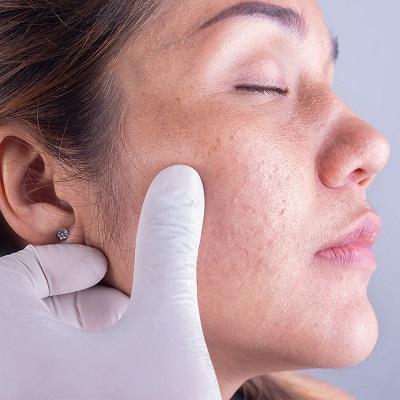Dermatologists Explain the Causes of Chronic Itching

Chronic itching, medically known as chronic pruritus, is a distressing symptom that can significantly impact quality of life. For those seeking expert advice on persistent itching, consulting the Best Dermatologist Muscat can provide invaluable insight and treatment options tailored to individual needs. Understanding the root causes of chronic itching is essential for effective management, and dermatologists offer comprehensive explanations to help patients identify underlying conditions and find relief.
Persistent itchiness is more than just a nuisance—it often signals deeper health issues, ranging from skin diseases to systemic conditions. Specialists in skin health emphasize that thorough evaluation by a skilled skin professional in Muscat is crucial for accurate diagnosis and effective therapy. This article explores the diverse causes of chronic itching as explained by dermatologists, emphasizing practical information for sufferers.
What is Chronic Itching?
Defining Chronic Itching:
Chronic itching is defined as itching that lasts longer than six weeks. Unlike acute itching, which may be caused by a temporary irritant, chronic pruritus often indicates a persistent or underlying medical problem that requires attention.
The Impact on Patients:
Long-lasting itch can lead to discomfort, sleep disturbances, anxiety, and skin damage due to scratching. These complications may worsen the condition, creating a vicious cycle that requires medical intervention.
Common Skin-Related Causes of Chronic Itching:
Dermatologists often identify skin conditions as primary culprits behind ongoing itchiness.
Eczema (Atopic Dermatitis):
Eczema is a common inflammatory skin disorder characterized by dry, red, and itchy patches. Chronic itching is a hallmark symptom that can flare due to allergens, irritants, or stress.
Psoriasis:
Psoriasis causes rapid skin cell turnover, leading to thick, scaly plaques that can be intensely itchy and uncomfortable.
Contact Dermatitis:
This results from exposure to irritants or allergens causing localized redness and itchiness, which may become chronic if the triggering substance is not avoided.
Lichen Planus:
An inflammatory condition that causes purple, itchy, flat-topped bumps, often on the wrists and ankles.
Fungal Infections:
Persistent fungal infections such as athlete’s foot or ringworm can cause chronic itching if untreated.
Systemic Diseases Linked to Chronic Itching:
Not all causes of chronic itching originate in the skin. Dermatologists stress the importance of considering systemic diseases that manifest with pruritus.
Liver Disease:
Conditions such as cholestasis or cirrhosis can lead to a buildup of bile acids in the blood, causing generalized itching without visible rash.
Kidney Failure:
Uremic pruritus is common in patients with advanced kidney disease, resulting from toxins accumulating in the body.
Thyroid Disorders:
Both hyperthyroidism and hypothyroidism can be associated with dry skin and itching.
Diabetes Mellitus:
Elevated blood sugar levels may cause dry skin and neuropathic itch.
Hematologic Disorders:
Certain blood cancers or iron deficiency anemia may present with unexplained itch.
Neuropathic and Psychogenic Itching:
Chronic itch may sometimes originate from nerve-related or psychological causes.
Neuropathic Itching:
Damage or dysfunction in the nervous system, such as in multiple sclerosis or shingles, can trigger chronic itch sensations.
Psychogenic Itching:
Stress, anxiety, or depression can manifest as chronic itching without an identifiable physical cause.
Environmental and Lifestyle Factors Contributing to Chronic Itch:
Dermatologists also point out the role of external factors in provoking or worsening itch.
Dry Skin (Xerosis):
Especially common in older adults or during winter months, dry skin can lead to persistent itching.
Allergens and Irritants:
Exposure to harsh soaps, detergents, fragrances, or environmental allergens may cause or exacerbate itching.
Medications:
Certain drugs, including opioids, antibiotics, or blood pressure medications, may induce itching as a side effect.
Diagnosing the Cause of Chronic Itching:
Accurate diagnosis is key to effective treatment. Dermatologists perform comprehensive assessments to pinpoint causes.
Patient History:
Detailed history-taking includes symptom onset, duration, distribution, associated factors, and past medical history.
Physical Examination:
A thorough skin exam identifies lesions, patterns, and signs of systemic disease.
Laboratory Tests:
Blood tests, liver and kidney function tests, thyroid panels, and allergy tests may be ordered.
Skin Biopsy:
In some cases, a biopsy is necessary to distinguish among various dermatologic or systemic causes.
Treatment Approaches as Recommended by Dermatologists:
Managing chronic itching requires addressing the underlying cause alongside symptomatic relief.
Topical Treatments:
-
Moisturizers: To restore skin hydration and barrier function.
-
Corticosteroids: Reduce inflammation in eczema or dermatitis.
-
Calcineurin Inhibitors: For sensitive skin areas or long-term use.
-
Antifungal Creams: For fungal infections.
Systemic Medications:
-
Antihistamines: To reduce histamine-mediated itch.
-
Immunosuppressants: Such as cyclosporine for severe inflammatory conditions.
-
Neuropathic Agents: Gabapentin or pregabalin for nerve-related itch.
-
Treating Underlying Diseases: Managing diabetes, liver, or kidney disease as appropriate.
Phototherapy:
Controlled ultraviolet light therapy can benefit some chronic skin conditions with itching.
Lifestyle and Skincare Tips to Manage Chronic Itching:
-
Use lukewarm water for bathing and limit time to avoid skin dryness.
-
Choose fragrance-free and hypoallergenic skin products.
-
Avoid scratching; use cold compresses or distraction techniques.
-
Maintain a balanced diet and adequate hydration.
-
Wear breathable, loose clothing to reduce irritation.
When to Consult a Specialist:
Persistent itching without clear cause or not responding to initial treatment warrants evaluation by a specialist. The best dermatologist Muscat can provide advanced diagnostic testing and tailored treatment plans to alleviate symptoms and improve skin health.
Emerging Research and Future Directions:
New therapies focusing on nerve signaling pathways and immune modulation are under investigation, offering hope for better management of chronic pruritus.
Conclusion:
Chronic itching is a complex symptom with diverse causes. Seeking expert care from a highly qualified dermatologist ensures accurate diagnosis and effective treatment tailored to individual needs. With comprehensive evaluation and personalized management plans, patients can find lasting relief and improve their skin quality of life.
- Art
- Causes
- Crafts
- Dance
- Drinks
- Film
- Fitness
- Food
- Games
- Gardening
- Health
- Home
- Literature
- Music
- Networking
- Other
- Party
- Religion
- Shopping
- Sports
- Theater
- Wellness
- IT, Cloud, Software and Technology


